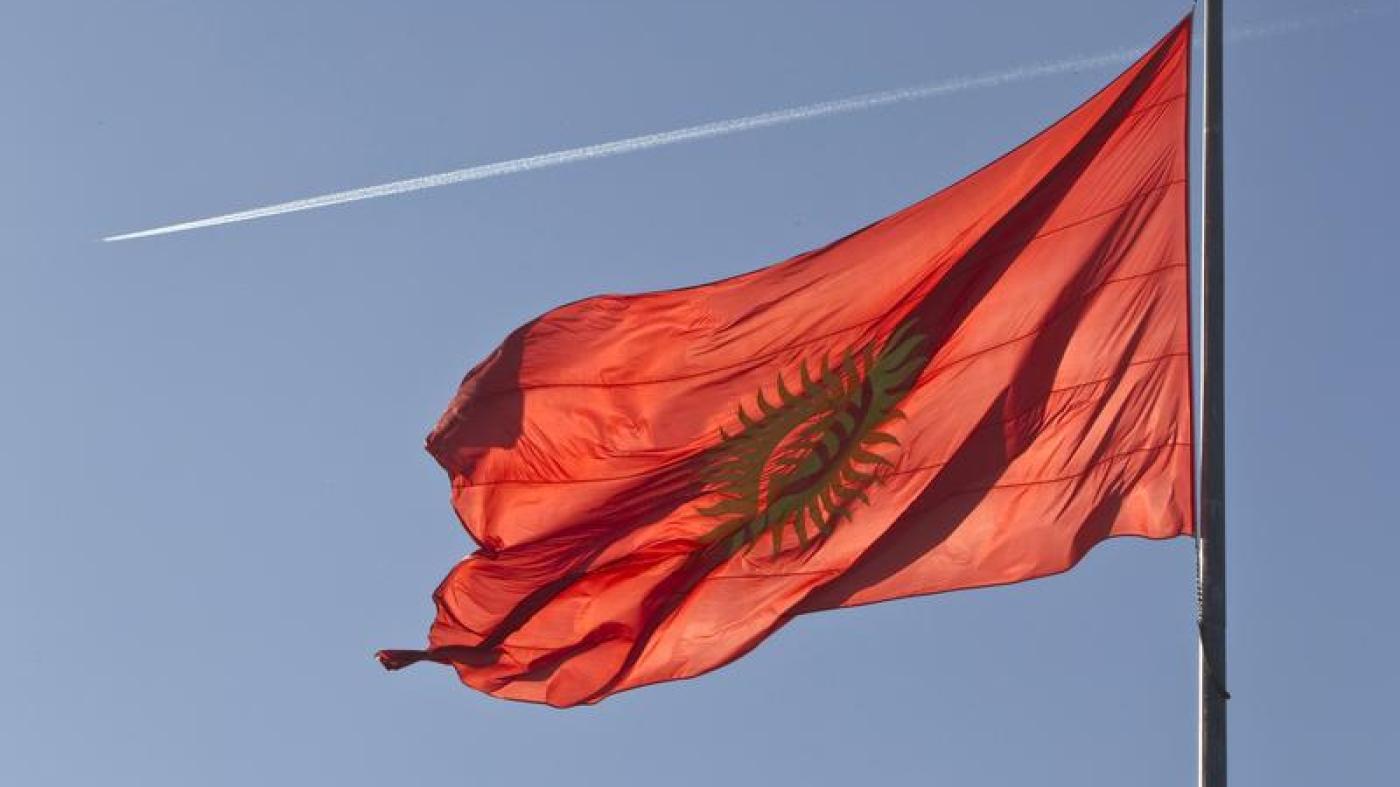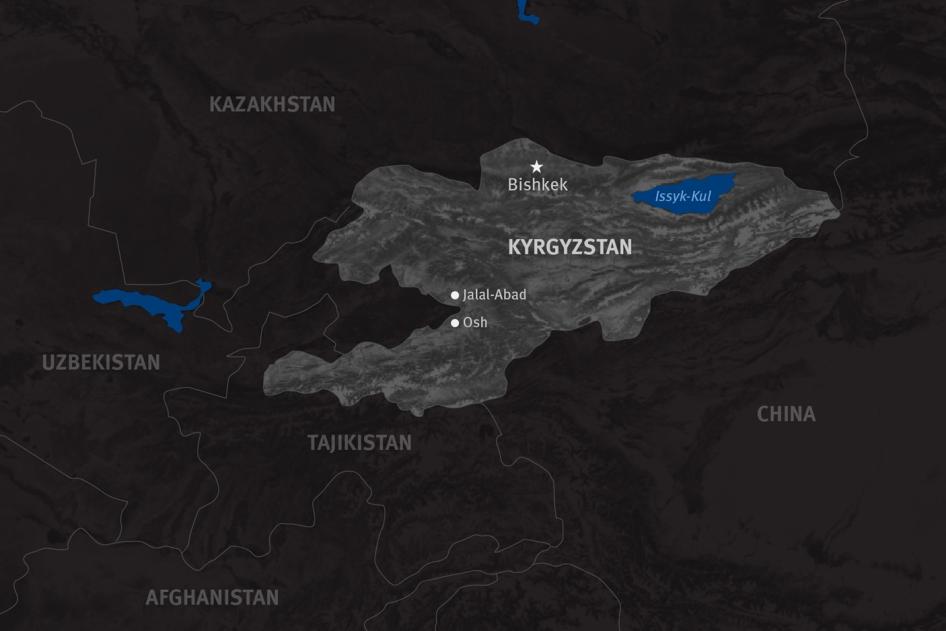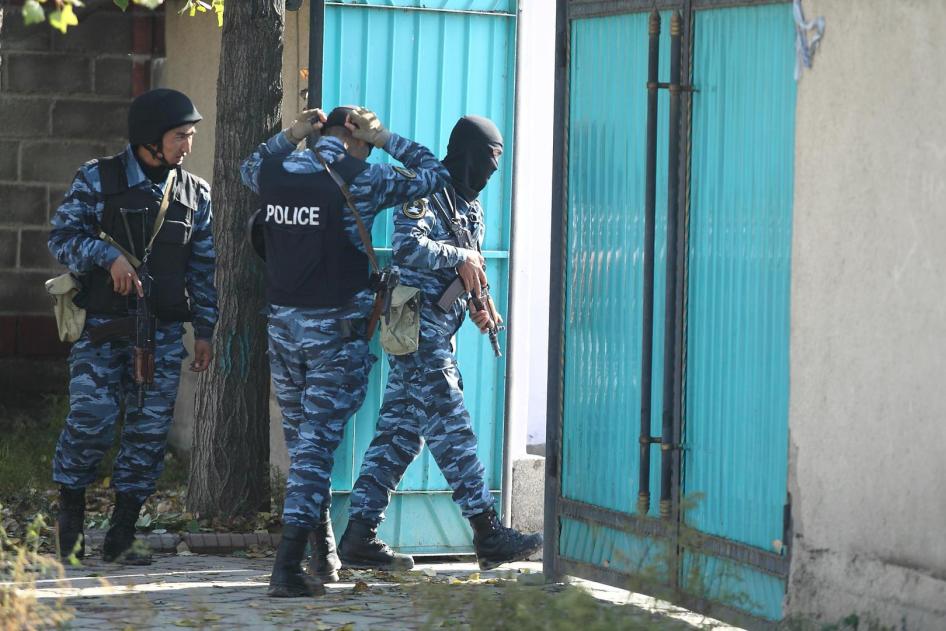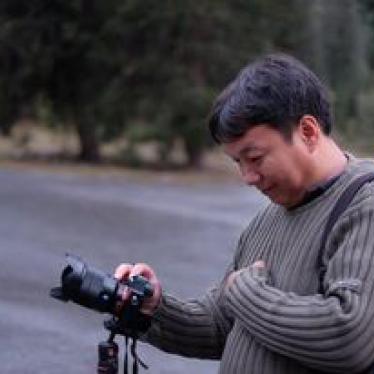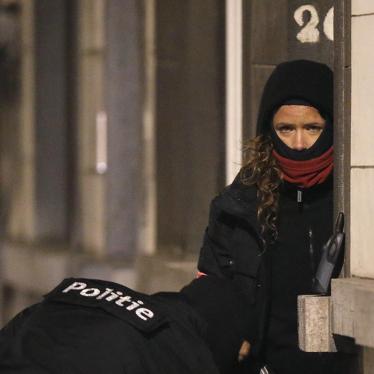Tell me about your new report on Kyrgyzstan’s crackdown on “extremist” material.
This report documents the use of a little-known measure in Kyrgyzstan, article 299-2 of the criminal code, which allows authorities to throw people in prison for 3 to 10 years simply for possessing videos, pamphlets, and other material the authorities consider “extremist.”
There are genuine concerns about Islamist armed groups in Central Asia, but we have many problems with this crackdown. A lot of the material deemed extremist may not be liked by the government, but is is protected under international free speech law. Another is that even if the material depicts violence, the people possessing it often haven’t acted on it, for example by using it for violent purposes or even distributing it. In one of the most Orwellian aspects of this crackdown, some people were prosecuted for possessing material that wasn’t declared unlawful until they were arrested for possessing it.
To their credit, Kyrgyzstan’s authorities agreed to reform article 299-2 to allow for prosecutions only if there is an intent to disseminate or use material to incite violence. That reform is supposed to take effect in January. They are also working to improve the expertise of people reviewing this material for the government to discern what is truly extremist material and what is simply offensive or religiously conservative. But we’re unsure if this will actually happen or happen on schedule.
Who is being arrested?
Some of the people may be a danger to the government. But many – perhaps most – don’t appear to be any danger at all. And there’s no evidence of that presented in court. This makes it easy to target political opponents, activists, defense lawyers, and ordinary citizens.
A few cases I documented involve journalists who were convicted, though they said they had this material for work they were doing on extremism. Lawyers have been threatened for representing people charged under this provision. One lawyer I interviewed was convicted of possessing extremist material based on the contents of his file on one of his clients. Naturally the lawyer’s case file included the material used to prosecute his client. The lawyer’s three-year prison sentence was suspended but he told me his reputation was ruined.
I could be convicted under this law for keeping copies of the material I examined as part of my research.
What types of materials are considered extremist?
The law is tied to an overly broad definition of extremism. Kyrgyzstan is about 80 percent Muslim, and much of the material that is confiscated is religious, such as sermons by imams who have been critical of the government.
The material includes propaganda for hardline groups including some gruesome videos from groups like ISIS. Also banned are sermons and writings of Hizb ut-Tahrir, a group banned in Kyrgyzstan that wants a caliphate but publicly denounces violence to achieve that goal.
The government posts a list of banned materials online, but it is incomplete. So it is almost impossible for anyone to be sure whether material is considered extremist.
Is there anything clearly not extremist on this list?
Yes. For example, the list of banned material includes a film titled “I am gay and Muslim.” This film’s message is simply that there is no conflict in being both.
The list also contains two human rights reports by respected groups, one about migrant workers’ rights, and the other about the inter-ethnic violence and its aftermath in southern Kyrgyzstan in 2010. The government banned those reports for “inciting ethnic strife” even though they contained no calls for violence.
Some people said they were arrested for having verses from the Quran.
The government also banned information from jihadology.net, a clearing house for extremist videos and statements that is widely used by Western academics, reporters, and others researching groups like ISIS and Al-Qaeda in an effort to understand what they’re doing.
But regardless of whether any of this the material is offensive, people have the right to read it, watch it, or just let it collect dust on their bookshelf. People’s rights to freedom of expression and freedom of religion protect even deeply offensive content so long as its are not used to incite violence.
How serious is the problem of armed extremism in Kyrgyzstan?
There is a link between Central Asia and groups like ISIS. Since 2013, between 2,600 and 5,000 Central Asians, including 764 from Kyrgyzstan, are estimated to have traveled to Iraq, Syria, and Afghanistan to join extremist armed groups. But those numbers are debatable and include people like cooks and mechanics as well as spouses and children.
Also, Central Asian nationals have been implicated in seven attacks, most of them deadly, since 2016. One of these attacks was in Kyrgyzstan’s capital, Bishkek.
Shouldn’t the government try to prevent people following groups like ISIS?
Human Rights Watch deplores attacks by armed extremist groups and we share authorities’ concerns about keeping people safe. But the way to go about that is not to throw people in jail for the videos they watch and the books they read.
Rather, authorities should focus on cases where there is credible evidence of criminal intent. Has an individual been making statements online or to friends that they intend to commit violence? What are they planning? We’d like to see the authorities put their money and energy into prosecuting people who are really plotting or carrying out violence.
France and Spain have laws prohibiting what they call “glorification” of extremist material. We have issues with these laws. Yet they are still not as problematic as Kyrgyzstan’s because they do not outlaw simple possession of material considered extremist.
Does this crackdown focus on any particular ethnic group?
About 75 percent of the population is ethnic Kyrgyz. The Uzbek minority, concentrated in the religiously conservative south, makes up 15 percent, but they make up the largest group by percentage of people prosecuted under this measure.
We did not reach a conclusion on whether ethnic Uzbeks are being targeted. However, many ethnic Uzbeks we spoke to, as well as family members and their lawyers, said they felt the government was targeting them along with religious conservatives.
That sentiment fuels underlying tensions that have festered since ethnic violence between Uzbeks and Kyrgyz broke out in June 2010. The fighting left 400 dead, with thousands fleeing their homes. The Uzbek minority bore the brunt of the violence. Uzbek grievances stemming from the violence remain largely unaddressed yet many ethnic Ukbeks have been prosecuted for their alleged involvement in the violence.
How did you do research for this report?
I interviewed 70 people, most of them during two trips to Kyrgyzstan, and examined several dozen documents including court files on these cases. Most suspects and their families were terrified to speak with me, so I named almost none of them in the report.
The level of fear was sobering and striking. People were scared of being thrown back into jail, of being beaten by police or security forces. One man said to me: “We live in constant fear that at any moment someone will knock on our door with a warrant and take us to prison on false evidence.” That became the title of my report.
Did anybody’s story stick with you?
Many. One was about a young man who I call “Akmal,” from southern Kyrgyzstan. Last year Akmal downloaded several videos onto his cell phone and when he looked at them, he noticed one or more contained violent content. He was at a local bazaar, and he sought out a policeman and showed him one of the videos, thinking that the police should know about it. The policeman called over another officer, confiscated the phone, arrested Akmal, and the next thing he knew he was convicted of possessing extremist material. In court, the police presented no evidence that Akmal wanted to distribute the material, much less go to a place like Syria and join an extremist group.
Why is this crackdown so disconcerting?
First, because people are being abused. Second, because counterterrorism measures that abuse people are not only unlawful, they’re counter-productive. They can backfire and make the problem worse. They can alienate suspects and local communities, including potential allies. And that’s exactly what groups like ISIS want. They want to drive a wedge between potential recruits and local communities and the state. They say, “Look at the horrible things that your government is doing to you, come join us.”
Why might the necessary reforms to change this law not happen?
It’s part of a large package of legal reforms, and authorities have said Kyrgyzstan may not have the capacity to train its prosecutors, lawyers, judges, etcetera, to carry out the changes by January. That’s one reason we say that the UN and other agencies involved in Kyrgyzstan’s counterterrorism measures should help to ensure these reforms are not just adopted, but also carried out.
